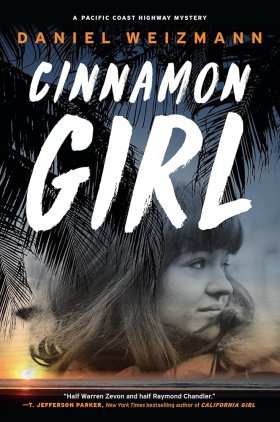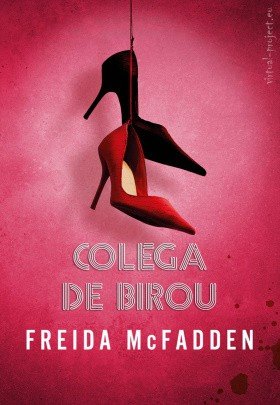Rabbi Peretz took it all in. The skeptical smile didn’t budge. Elkaim kept moving and I helped him into his room. He sat on the bed and poured himself water from a brown-and-white plastic pitcher. He asked me to turn on the television—channel 4.2, COZI-TV, The Rifleman. Chuck Connors was talking to an Indian boy, with captions. Elkaim was asleep inside five minutes.
As I made my way out, I took one last peek into the rec room—the handsome entertainer was solo now, giving it his all, leading the geriatric gang through “Sing a Song,” by The Carpenters. My belly tightened again—one of Uncle Hersch’s favorites. I could picture him sitting there, humming along in that low croak of his, rumbling under the squealing crowd like a man in prayer. I couldn’t always picture my dead uncle, but I pictured him in this instant, in his last days, singing alone among strangers.
And I’d barely visited him.
Too late now, schmuck.
With a few hours to kill, I decided to visit Emil’s grave. I looked him up on FamilySearch.org. He was out at Home of Peace in Whittier. Herschel was buried there too—where I didn’t know, and didn’t want to know.
Down through East LA I drove, past lavanderias and ferreterias and a movie marquee announcing that Jesucristo es el Señor. Then—the long brick wall. I turned right, passing under the high metal gates. Inside, the place was empty, silent, palms shimmering among the tombs. I parked beside the only other car, a black Chrysler Pacifica with the strange tilted metal S, the modern Hearse. In the hazy, gloomy noon light, I hoofed it northeast reading the names along the way—Katzenelson, Greener, Wise—a quarter-mile of dead Jews, but no Herschel Berman. I was grateful for that. Then I came to two markers in the grass, side by side.
EMIL ELKAIM
CYNTHIA “CINNAMON” PERSKY
אמיל אלקים
Beloved Daughler
March 28, 1966–June 16, 1984
May 31, 1966–November 20, 1987
I almost lost a heartbeat when I saw it—sweethearts, together forever.
 7
7
Early afternoon I parked across from Centinela Trailer Court in Inglewood, a jammed lot of thirty-odd mobile homes guarded by a fence any junior high schooler could hop. At the opening of the gate, under a ratty orange beach umbrella, an elderly Black man in a blue windbreaker sat on a low stool, flipping through a glossy real estate freebie without irony.
“What can I help you with today?” he said, mock official.
“You ever hear about a guy who lives around here that calls himself Lazerbeam?”
He smirked. “I ought to—I’m security of this property.” Then: “You a bill collector?”
I said, “No. He get a lot of those?”
His smile was a yes. “You can hear his wife hollerin’ about it twenty-four seven.”
“Where can I find them?”
“Eleven and twelve, on the right.”
I nodded and he scooted to let me through. He wasn’t much of a guard, but then again, who’d want to rob a decrepit trailer park? I moseyed on down the dirt road in the midday heat, counting tin homes. As I approached #11 I heard AM radio blasting, KSRF—“My Little Runaway.” Had to be the place. I knocked and the music cut all at once. A door cracked and a voluptuous older woman in a light purple terry cloth bathrobe popped her head out.
She sized me up. “What can I do for ya?”
I said, “Does…Lazerbeam live here?”
She burst into a cackle, her stringy dirty-blond locks shaking over her eyes.
“Larry,” she howled, “it’s the guy from the phone.”
Larry “Lazerbeam” came out from behind the mini-kitchenette—pushing sixty-five, short, chubby, in thick glasses, with wild salt-and-pepper hair and a thick Rip Van Winkle beard. He wore military tags over a faded Stones tongue tee, an unbuttoned thrift store Oxford, and faded camouflage cargo pants. And like old Rip, he looked like he’d either just woken up or he’d been hibernating for a hundred years. And he wasn’t a hunchback exactly, but there was something permanently wrong with his posture, an odd forward lean that made him seem even shorter than he already was.
“You showed,” he said, not looking me in the eye. “Here’s a guy says he’s gonna show and then he shows.”
“I hope it’s an okay time,” I said.
“We’re a little disorganized at the moment,” he said, “but come on into the palace of love and peace, man, don’t be shy.”
The woman gave a snort and waved me in. Side by side, these two round, late middle-agers were like teddy bears. Yet there was a distinctly non–teddy bear energy in the air. The place was barely lit, tiny, crammed floor to ceiling with dusty memorabilia, piles of LPs, precarious towers of stacked cassettes and eight-tracks and CDs and boxed sets, magazines strewn over nearly every conceivable spot on the chipped vinyl floor, alongside rolled-up, rubber-banded posters leaning against the walls, signed and framed T-shirts, an RV mantel overflowing with knickknacks and bobble-heads. One sad-looking marijuana roach sat in a Harrah’s Club Reno & Lake Tahoe ashtray on the built-in coffee table.
“Sit down, sit down, man,” he said. “I don’t got much to offer. You want some wine? It’s not very good. Or coconut milk?”
I shook my head and took a seat on the built-in couch.
“Well, forget all that,” he said, “but it was good of you to pop on by, you know what I mean? ’Cause I’m better person-to-person.”
“Larry,” his wife said, “will you shut the fuck up and let the kid get a word in edgewise?”
“Oh, no, it’s okay,” I said, shifting in my seat, “I’m okay, I just—”
“Larry’s not my real name, by the way,” he explained. “She just says that to get my goat.”
“But it’s not Lazerbeam, is it?” I said.
“It’s La-zar,” his wife said with undisguised contempt.

























